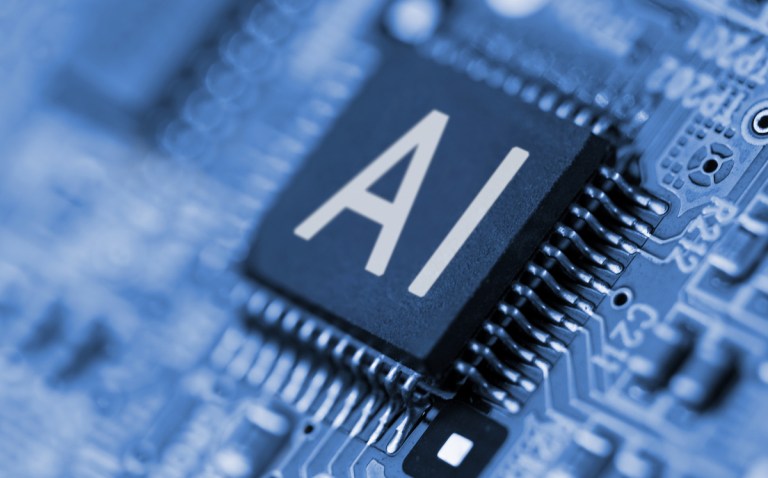It is almost generative artificial intelligence’s first birthday.
Next month, it will have been a full calendar year since OpenAI first launched its ChatGPT product and spurred the creation of an entirely new and rapidly evolving industry — the AI sector.
The technology has come further in a year than many innovative advances have in a century or more. AI firms have been the recipient of more than $40 billion of venture capital funding in 2023 alone.
As generative AI continues to generate excitement and accelerate change, these are the stories PYMNTS has been tracking.
AI in the Palm of Your Hand
Generative AI’s capabilities have become more multimodal and increasingly operate seamlessly between text, visual prompts and video. Now, the idea of AI-specific hardware devices is gaining traction.
Google revealed Wednesday (Oct. 4) a host of generative AI-powered integrations and advancements embedded into its latest Pixel 8 smartphones and smartwatches, each designed to make the use of AI inextricable from the moments that make up daily life.
Advertisement: Scroll to Continue
Also Wednesday, Google unveiled plans to ramp up its Google Assistant’s conversational capabilities and overall acuity with the help of generative AI. The upgrade leans on Google’s Bard AI product and aims to provide a more intuitive and intelligent experience, going beyond voice commands while adapting to the user’s needs across various mediums.
AI technology more broadly is undergoing a fundamental upgrade, as large multimodal models (LMMs) start to evolve the capabilities of large language models (LLMs).
PYMNTS has also been tracking how the increasingly multi-modal capabilities of generative AI have been giving a shot in the arm to voice tech and voice AI capabilities, which have languished under the weight of consumer expectations that exceeded technical capability.
Read also: Sam Altman’s Gen AI ‘iPhone’ Could Upend the AI Economy
Given all the recent advances in AI, it perhaps comes as no surprise that the CEO of SoftBank, Masayoshi Son, said Wednesday that artificial general intelligence (AGI) is on the cusp of exceeding human knowledge.
The investor said that by the end of the decade, in his view, AGI will be 10 times more powerful than all of humanity.
But for AI to get there, it will need lots of training data. PYMNTS reported this week on how the data landscape is becoming increasingly competitive and expensive as tech firms large and small ramp up their efforts to build differentiated content libraries.
After all, the winner-take-most dynamics of digital tech’s operational ecosystem make access to training data a crucial competitive moat.
AI Is for Robots Too
In AI-adjacent news this week, Chipotle revealed Tuesday (Oct. 3) that it is linking up with automated food service platform Hyphen to test AI-powered robot food prep for what the quick-service restaurant (QSR) chain is calling a “digital makeline.”
The partnership comes as a newly published PYMNTS Intelligence report found that the QSR industry estimates that 51% of tasks will be automated by 2025.
Despite the forward march of progress, PYMNTS Intelligence showed that 83% percent of consumers believe that food prepared by robots would be of lower quality and less personalized compared to food prepared by humans.
And the restaurant industry isn’t alone. PYMNTS Intelligence also found that Americans have mixed feelings about the use of generative AI in their healthcare.
Deepfakes Are Causing Real Problems
U.S. Rep. Yvette Clarke and U.S. Sen. Amy Klobuchar sent Meta CEO Mark Zuckerberg and X (formerly Twitter) CEO Linda Yaccarino a letter Thursday (Oct, 5) expressing “serious concerns” about AI-generated deepfakes on their platforms, particularly as they relate to political ads.
And it isn’t just lawmakers and their campaigns who are worried.
One of the world’s most popular YouTubers, MrBeast, as well as actor Tom Hanks, are separately speaking out against the illicit use of their synthetic likenesses in new deepfake scam ads that are being spread around TikTok, X and other social sites.
Karen Postma, managing vice president of risk analytics and fraud services at PSCU, told PYMNTS Wednesday that generative AI has made phishing and other behaviorally-driven fraud techniques not only more effective and convincing, but also easier to conduct on a larger scale.
“In order to prevent AI fraud, it is becoming more important to combine data and execute on the pattern analysis very, very quickly,” Postma said.
“The ability to collaborate and share that data to fight fraudsters together versus us both fighting the fraudsters independently gives the best chance of success,” she added.
Marketplace Developments
On the fundraising side, Visa launched Monday (Oct. 2) a new $100 million generative AI ventures initiative, aiming to invest in companies focused on developing generative AI technologies and applications that will shape the future of commerce and payments.
As Form3 CEO Michael Mueller told PYMNTS Tuesday (Oct. 3): “Payments are still an exciting growth business, despite the fact that they’ve been around for so long.”
Elsewhere, accounts payable (AP) automation firm Stampli announced Tuesday that it raised $61 million to expand its AI-powered AP offering; IBM said Thursday it expects its AI consulting business to grow by $1 billion next year; and buzzy AI startup Anthropic is reportedly in talks to secure an additional $2 billion in funding after Amazon agreed to invest up to $4 billion in the company.
And in a move that could hinder Meta’s metaverse ambitions, the tech and social media giant was said to be planning layoffs in its Reality Labs division.
The pivot from the metaverse to AI could be a win. Barclays analysts see Meta as well-positioned for growth in AI due to its four major app products: WhatsApp, Messenger, Instagram and Facebook, which can serve as interaction layers.
For all PYMNTS AI coverage, subscribe to the daily AI Newsletter.

